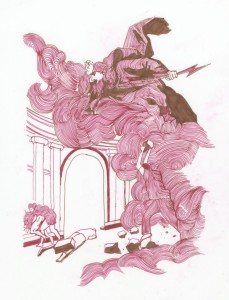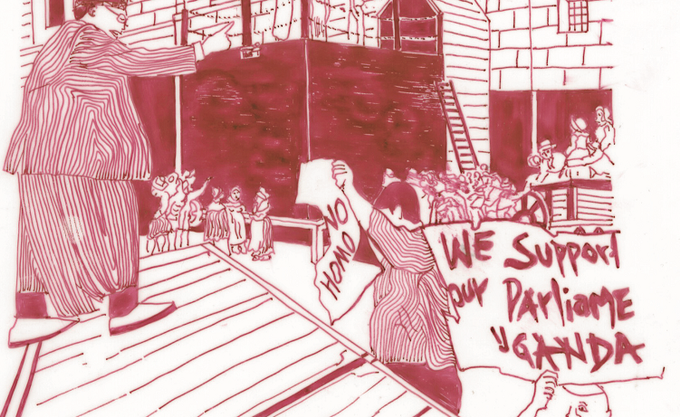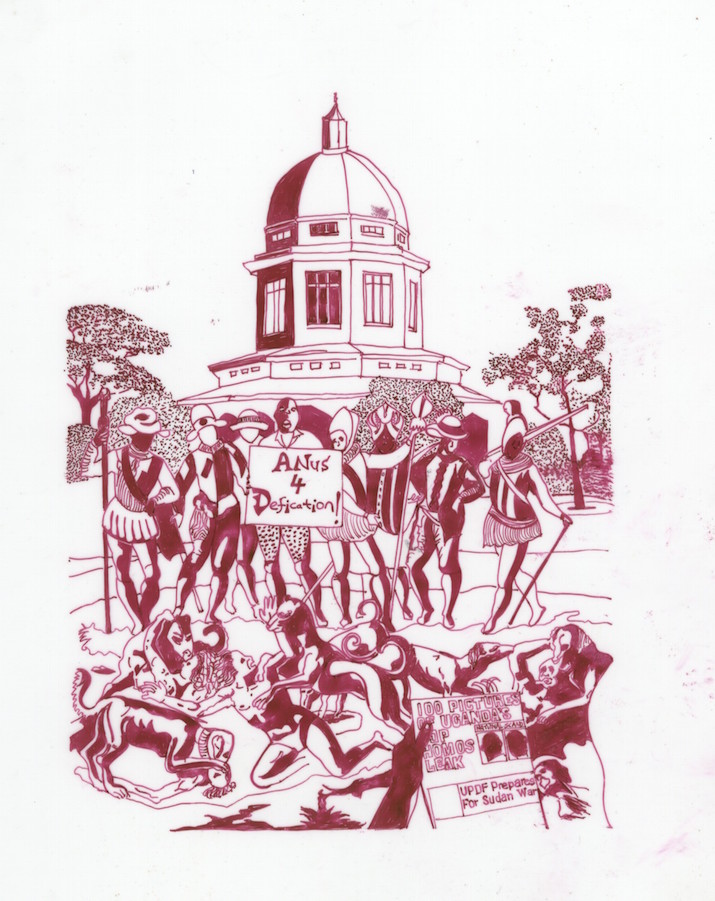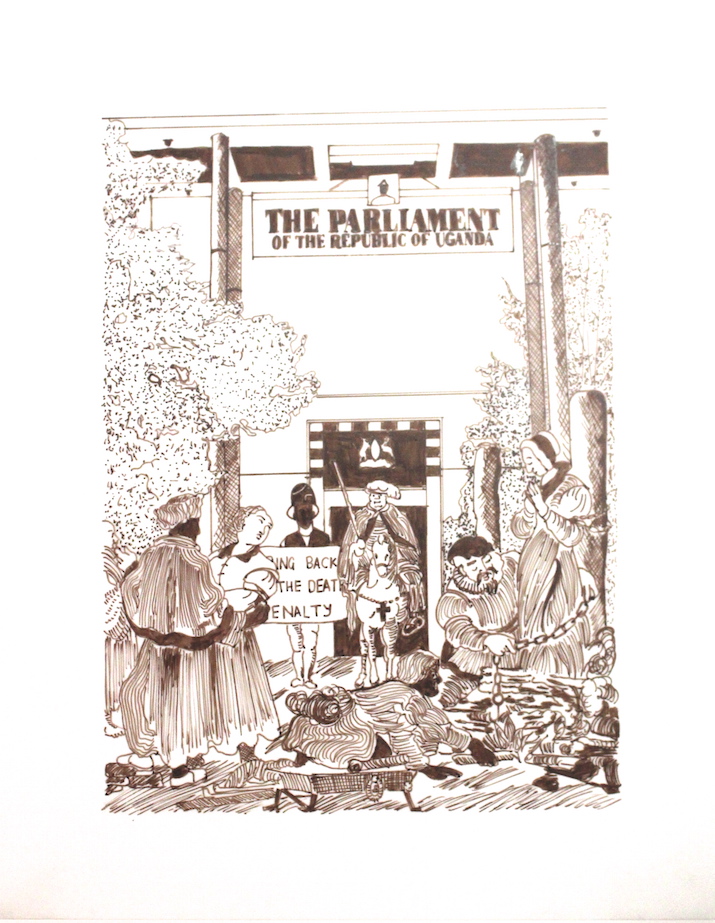
Adejoke Tugbiyele is one of the artists in the group show ‘Speaking Back’ in the Goodman Gallery Cape Town until July 4, 2015
Death by Stoning, 2014.
About the artist:
Adejoke Tugbiyele’s multimedia aesthetic practice offers a different take on sexual identity and political freedom –an issue all too familiar to South African audiences through the work of local artists and political activists. Tugbiyele is an emerging Nigerian-American artist and activist who spent her formative years growing up in Lagos, Nigeria. Her series of drawings, inspired by the journalistic fervour in Lagos during the passing of Nigeria’s anti-gay laws in 2014, draws attention to the self-righteous moralising inherent in contemporary media narratives surrounding the bill and her conceptual sculpture, Unpray the Flesh (2013) investigates religious complicity in the persecution of marginalised groups through the conjoining of religious symbolism with phallocentric worship. In AfroOdyssey V: Demons Contained, a performative video piece, Tugbiyele delves into her own sexual identifications and the narrative ramifications of ‘coming out,’ for familial and cultural histories.
We support our parlement, 2014.
Anus 4 Defication, 2014.
Bring back the death penalty, 2014.
About the show:
Ruby Onyinyechi Amanze, Ghada Amer, Candice Breitz, Virginia Chihota, Ivy Chemutai Ng’ok, Otobong Nkanga, Nkiru Oparah, Tracey Rose, Adejoke Tugbiyele, Mickalene Thomas, Kara Walker, Arlene Wandera
Speaking Back seeks to reveal deeply significant dimensions of culture and subjectivity, history and struggle, by bringing women together as diverse artists to find out what each in her artistically signified yet gendered/racial/sexual/cultural singularity is offering to the world, to us all. It seeks to attain a more complete knowledge of that world, as it is lived, from multiple positions over time and space.
We have a tendency in exhibitions of work by women to generalise the artists as merely exemplars of a gendered collective: women, a sexualising nomination by which they are, as a category lumped together, their singularity annulled. While the exhibition makes space – conceptually and physically – for women artists, it embraces the potential of aesthetic practice to bring forward the singularity of each person and the variations in her specific symbolic capacities. If there are any generalisations to be made, it could be said that Speaking Back, prioritises narration – the use of particularly chosen aesthetic practices to convey a story to an audience. Not just as storytelling, but as speaking authentically, with vulnerability and strength, about who we are, and about the power of narration and its endless possibilities for reinvention.



